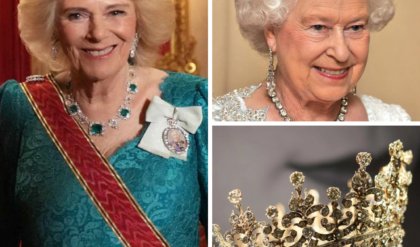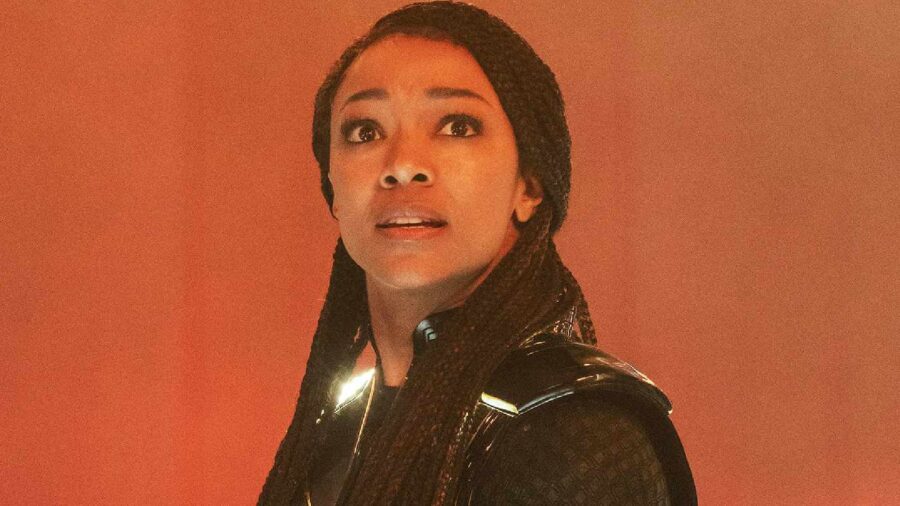
With the Star Trek: Discovery series finale streaming, I am surprised and disappointed that–for precious little benefit–“Life, Itself” manages to betray one of the core ideals of the franchise. One of the last things to happen in the episode is that Michael Burnham knowingly sends Zora–the artificial intelligence that runs Discovery–on a mission that ensures she will never see or speak to any of the crew again, and in fact will speak to precious few people at all for centuries. Zora is not offered a choice, she is not given details about why she must make the trip, and at no point does Burnham seem even remotely interested in the massive sacrifice she’s demanding.
In Star Trek, Artificial Life Doesn’t Mean Half Life
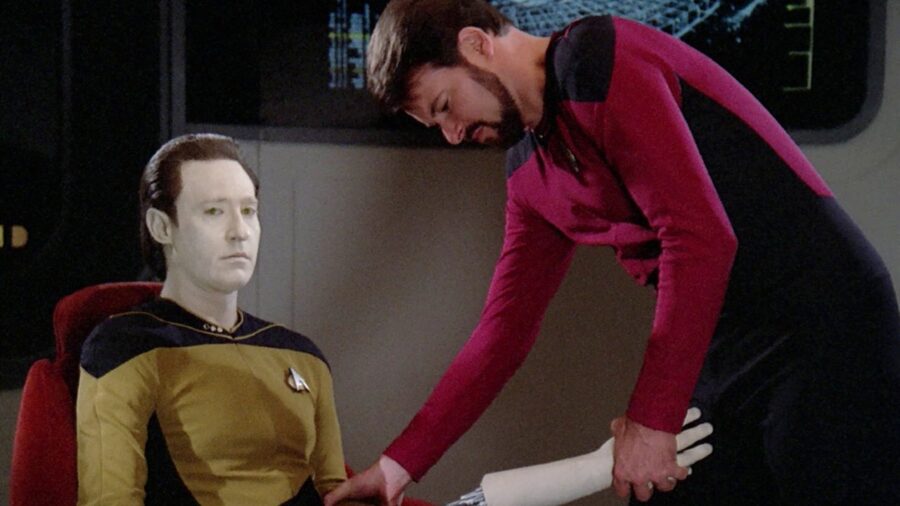
Particularly since the introduction of Brent Spiner’s Data in Star Trek: The Next Generation, the franchise has told stories wrestling with the question of whether artificial life could have the same value as biological life–and it almost always checks the “yes” box.
Data wins his autonomy in TNG‘s “The Measure of a Man.” In “The Quality of Life” Data succeeds in convincing Captain Picard that the small Exocomp robots are capable of self-awareness and therefore should be allowed to make their own choices rather than be forced to sacrifice themselves.
Likewise, in Star Trek: Voyager Robert Picardo’s The Doctor is treated as a full, independent member of the crew even though he’s a holographic program.
In spite of it all, in spite of the Discovery finale being set around 800 years after the events of TNG and Voyager, and in spite of Michael Burnham being portrayed as arguably the most progressive Trek lead in the franchise’s history–she treats Zora like a toaster oven with a voice box.
Could You Imagine?
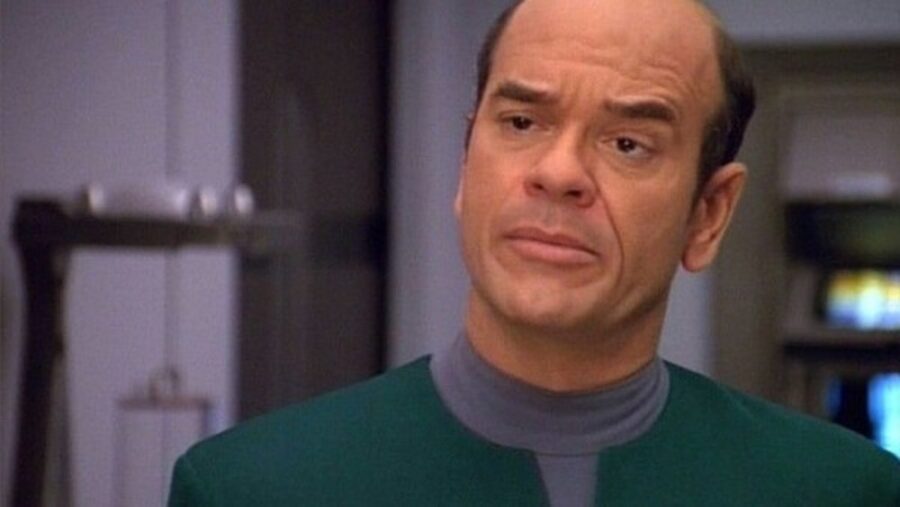
Could you imagine Captain Picard casually telling Data he was about to be sent on a mission that would last millennia without giving him any details about it, and without offering him a choice? Could you imagine Janeway doing the same thing to The Doctor?
Of course not. But then we get the Discovery finale, and Burnham’s all, “yep, we’ll all be dead before you’re back. ‘Kay thanks bye-eee!”
Short Treks
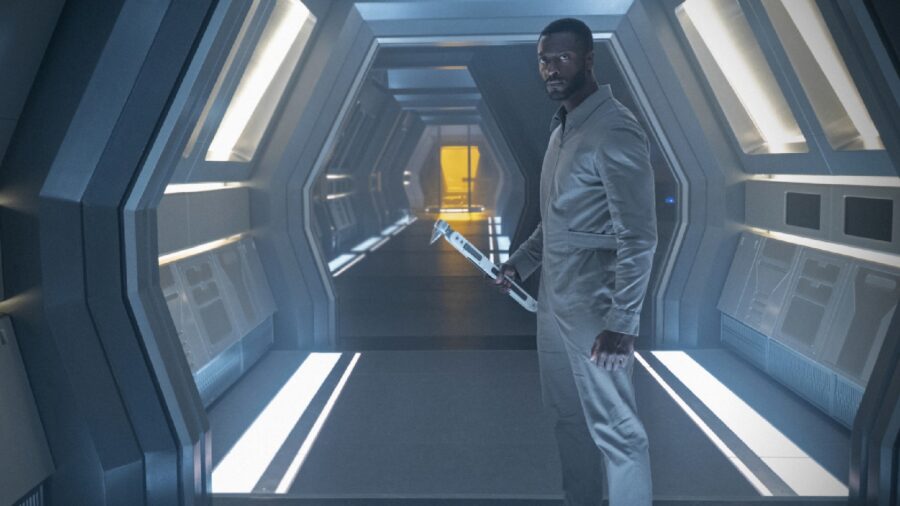
Of course, the Discovery finale writers didn’t do this without reason. The Star Trek: Short Treks episode “Calypso” apparently needed to be resolved.
The story finds a man named Craft who winds up aboard Discovery. He develops a relationship with Zora, who informs him he is the only living person aboard and that she’s been journeying without crew for somewhere around one thousand years.
The question of how and why this happened has lingered ever since the Short Treks episode aired in 2018, and Zora’s mission at the end of the Discovery finale represents the only answer we’ve received about it.
Was It Worth It?
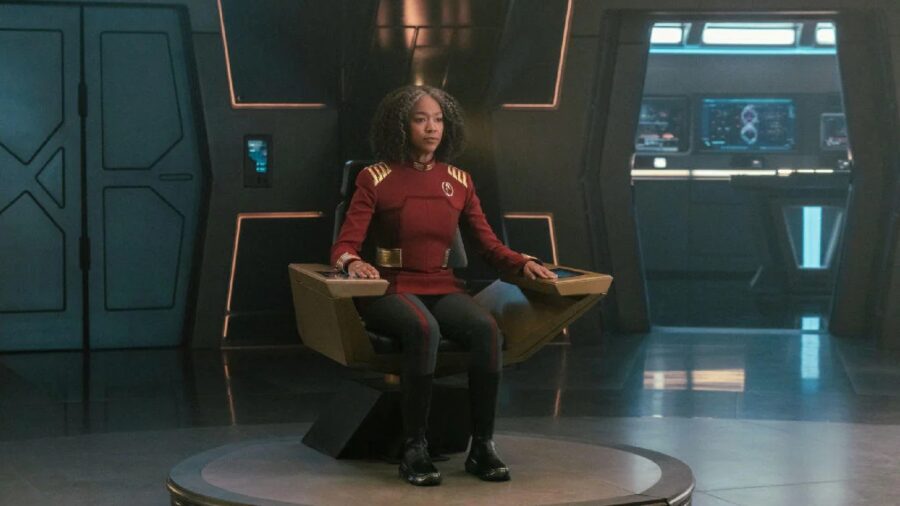
I get that the Discovery finale writers wanted to do something to address “Calypso,” and I get that since they didn’t know about the show’s cancellation until most of Season 5 was filmed, they needed to throw something together without much room to work. But exactly how badly did we need “Calypso” to be resolved?
There are plenty of unanswered question in Star Trek. Did the device storing Professor Moriarty survive the crash of the Enterprise-D in Star Trek: Generations? Did Ben Sisko ever come back from the Celestial Temple?
How did Worf lose his ambassadorship to the Klingon Empire? Did his brother ever regain his memories? What happened to Tosk? What happened to the gross bugs from “Conspiracy?” Did Spock and Scotty ever hang out in the 24th century?
But none of the answers to those questions is worth just straight up ignoring the core ideals of Star Trek like the Discovery finale does.
Do I want to know if Will Riker’s transporter double survived Cardassian prison? Sure! Am I willing to find out in an episode titled “Starfleet Decides Slavery Is Pretty Cool?
No. No, thanks. Price is officially too high. I’ll stay with the mystery.
And Don’t Tell Me She’s Just A Voice
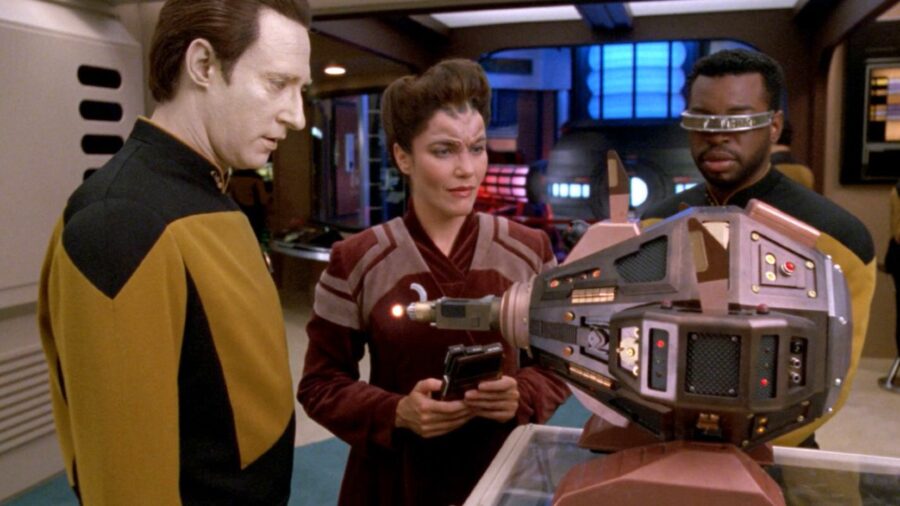
You want to tell me Zora’s just a voice on Discovery, and what happens to her in the finale doesn’t matter?
The Exocomps are the size of watermelons and look like someone slapped some Mister Potato parts on a sci-fi themed pinata. In Star Trek: Lower Decks they’re allowed to join Starfleet. Compared to Exocomps, Zora could rate an ambassadorship.
By The Way…
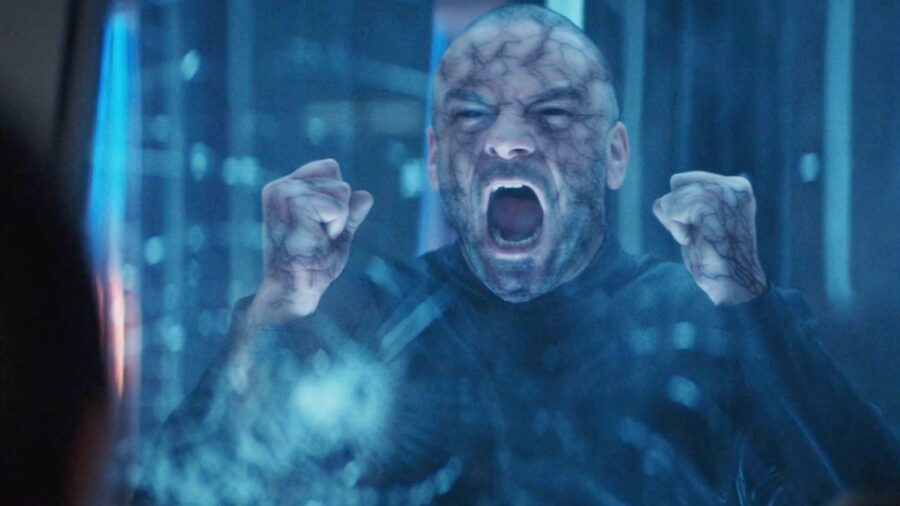
Even if you decide to ignore the idea that artificial life still has value and should be allowed freedom, isn’t there maybe another glaring problem with the notion introduced in the Discovery finale that what happens to Zora in “Calypso” is intentional?
Anyone else remember that–long before the Discovery finale–the whole reason Zora came to be was because the Sphere data was merged with the systems on Discovery in Season 2? And that the whole reason Discovery went into the future was to make sure the rogue AI Control could never get ahold of the Sphere data–because if it did, it could wipe out all life in the galaxy?
Hey, do you think maybe in light of all that, that maybe abandoning that precious Sphere data for over a thousand years to fend for itself without any human aid might be a bad idea?





